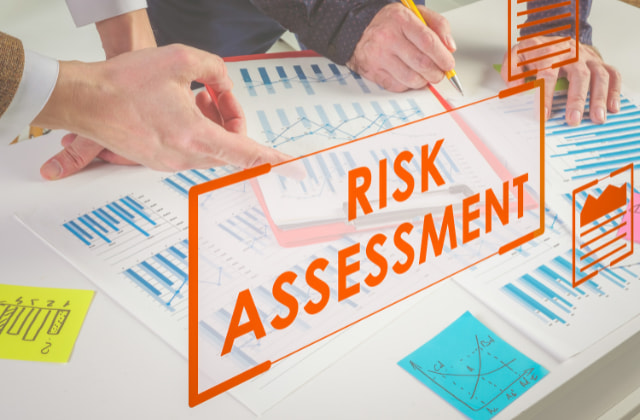Exploring the Increasing Importance of Risk Management in Corporate Strategy
Exploring the Increasing Importance of Risk Management in Corporate Strategy
Blog Article
Recognizing the Importance of Risk Management in Service Success and Sustainability
In today's ever-evolving business landscape, the importance of Risk Management can not be downplayed. It stands as a crucial column, reinforcing company success and sustainability in the middle of a sea of unpredictabilities. By identifying and minimizing prospective threats, organizations guard their funding, foster resilience, and improve public count on. Equally, it leads the way for development and growth. Let's unbox this complicated topic, checking out just how proactive Risk Management adds to the durability and success of organizations.
The Idea of Risk Management in Company
Risk Management, a basic facet of organization operations, lugs a significant weight in the success or failing of a firm. It includes recognizing, evaluating, and regulating risks to a company's funding and profits. These risks, termed as dangers, might come from a selection of sources including financial uncertainties, legal responsibilities, tactical Management mistakes, crashes, and natural disasters. Services use Risk Management procedures to reduce the unfavorable effects of these threats. It is a systematic strategy that leads the way for notified decision-making, guaranteeing monetary security and sustainability. The principle of Risk Management is not a guarantee versus Risk, however instead an essential tool that promotes operational effectiveness and strength in face of unpredictability.
Crucial element of a Durable Risk Management Technique
Building a durable Risk Management approach entails several crucial elements. Recognition of possible risks is the key action, adhered to by a detailed analysis of these risks. After recognizing the gravity of the threats, correct measures need to be prepared for Risk reduction. These steps can range from diversity of sources to insurance protection. An efficient Risk Management strategy likewise involves consistent surveillance and review of the recognized risks and the efficiency of the control actions. The strategy ought to be versatile enough to fit changes in the business environment. Furthermore, the method should likewise involve training of the staff members to deal with unanticipated circumstances. All these elements, when integrated efficiently, add to a durable Risk Management technique.
Just How Risk Management Adds To Business Success

Instance Researches: Effective Risk Management in Technique
Future Fads in Risk Management and Their Effects for Businesses
As the global organization landscape remains to evolve, so as well does the field of Risk Management. Future patterns suggest a shift towards aggressive rather than responsive approaches, with companies progressively seeking to identify and reduce threats prior to they occur. The consolidation of modern technology, especially AI and big data analytics, will certainly you can find out more play an essential function in this improvement. These tools can offer real-time understandings, making it possible for swift and informed decision-making. In addition, environmental, social, and administration (ESG) threats are forecasted to increase in prestige, mirroring an expanding social issue for sustainability. Organizations that adjust to these patterns and incorporate them into their Risk Management techniques will likely be better equipped you can look here for success and sustainability in the uncertain future.

Conclusion
Finally, comprehending the relevance of Risk Management is crucial for business sustainability and success. Positive identification, evaluation, and reduction of possible threats not only safeguards capital and revenues, but also fosters strength. Effective Risk Management strategies enhance operational effectiveness, client count on, and technology. Through real-world study and future patterns, it's obvious that a robust approach to risk Management is paramount in browsing today's complex company environment.
Businesses utilize Risk Management procedures to minimize the negative effects of these risks. The principle of Risk Management is not an assurance against Risk, but rather a vital tool that advertises operational effectiveness and strength in face of changability.
Recognition of prospective risks is the primary step, adhered to by a detailed evaluation of these risks (importance of risk management). After recognizing the gravity of the threats, proper actions need to be intended for Risk mitigation. A reliable Risk Management approach additionally includes constant tracking and testimonial of the determined risks and the performance of the control steps
Report this page